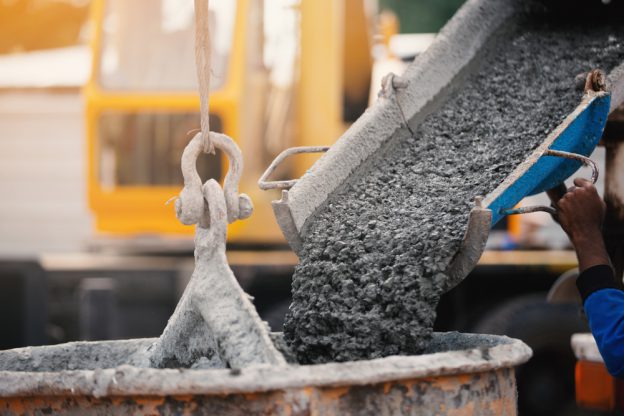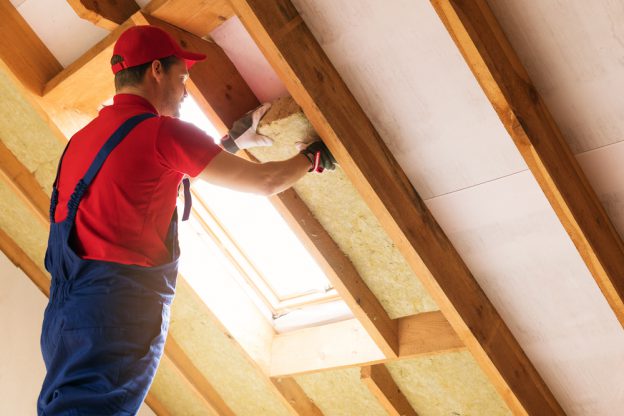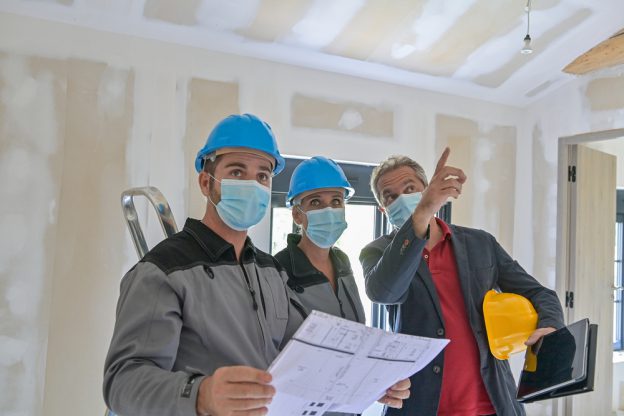The biggest difficulty of being a construction contractor – and perhaps any profession – is to keep the work flowing in.
The nature of construction work means that finding and keeping customers is a constant battle of keeping up with new forms of finding new customers and balancing that against the time-intensive lead gen strategies of yore.
So how do contractors generate leads? What are the best ways to go about not only growing your list of leads but maintaining them over time?
Let’s take a look.
What is Lead Generation?
Lead generation involves identifying and cultivating potential customers for a business’s products or services. For contractors, this means finding individuals or businesses that are interested in whatever services you provide as a contractor. That can be anything from general contracting services to Class C services like plumbing or electrical work.
The goal is to capture high-quality leads – people who are actively searching for contractor services and convert them into customers via a network of marketing and sales tactics that make up your lead gen operations.
Why is Lead Generation Important for Construction Contracting Businesses?
Lead generation is vital for contractors as it helps build a steady pipeline of potential projects, ensures consistent work, and contributes to the continual growth of your contracting business. Without effective lead generation, contractors may struggle with irregular workloads and revenue streams, which has a knock-on effect throughout the entire business.
As a contractor, you need steady work to survive, and the only way to find steady work is through a robust, consistent lead generation program.
A good lead generation funnel is focused on building trust. Your goal is to signal to the customer that you are a trusted professional who will fulfill their needs with as little friction or fear as possible. Your objective as a contractor is to signal that you are not only capable of doing the job but doing it with the least amount of fuss.
With that in mind, lead generation is essentially a lockpicking operation. Your goal is to match the right key with the right lock – which means creating a broad network of tools to access the multitude of different customers contractors must serve.
For that reason, lead generation is all about diversity and consistency. It’s your objective as a contractor to give as many different people as many different ways of reaching your business as possible, as frequently as possible, over an extended period of time.
Let’s go into some ways to do that.
The Most Common Lead Generators For Contractors
There’s so many different ways to generate leads these days, that it’s hard to know which ones to focus on. We can always look to the industry for clues as to which are the best ways to approach customers.
Here are the most common ways that contractors find leads in 2023. These approaches serve as a valid blueprint for any contractor to grow their lead generation operations for their contracting business.
Digital Marketing For Contractors
- SEO and Website Optimization: Ensuring your website is optimized for search engines is crucial as the most common way for people to find contractors is by searching “local _____ near me”. SEO allows them to find you, and an optimized website is the way to better SEO. Improving your SEO and website presence includes using relevant keywords, creating quality content, and ensuring your site is mobile-friendly, but can get as granular as you like. Hiring a professional to help with this can pay big dividends.
- Conversion Rate Optimization (CRO): CRO is a huge part of converting cold leads into warm leads and warm leads into customers. A contractor can generate so many leads just by installing a lead generation tool on their website, where interest parties can sign up. Lead gen captures can increase visitor conversion by 20%, giving you essential information like email addresses and phone numbers that you can then follow up with to earn their business.
- Pay-Per-Click (PPC) Advertising: PPC campaigns on search programs like Google allow contractors to target specific audiences, so you only pay for ads directed toward only people looking for your services in your area. Contractors who don’t advertise on Google and Bing are at a disadvantage.
- Social Media Advertising: Many contractor customers go to Facebook to find recommendations for contractors. Like PPC advertising, paid social ads are targeted advertisements that can reach these potential leads where they’re actively looking for just your services.
- Social Media Content Marketing: A great way to expand your marketing reach is content marketing. This involves sharing photo and video content online with people on Facebook, Instagram, and TikTok. These tools help in gaining organic reach within local areas by connecting you with cold leads who may need contracting work. However, these tools require strategic application to be effective, so hiring a professional like a marketing manager or social media manager who can handle the creation and deployment of content.
- Website Content: Another place where you can gain a competitive edge over your competitors is to have content on your own website that can gain the trust of your audience. For example, tools like CompanyCam and ProjectMapIt allow contractors to share project updates and photos in real-time, turning existing customer relationships into lead-generation opportunities. Blogs and other pieces of expert content can establish your authority in your area of expertise and gain cold leads via SEO. The bottom line is consistent, valuable content on your website can be the type of unique, eye-catching marketing that can set you apart from your competitors.r
- Facebook Groups: Active participation in relevant Facebook groups can generate leads by answering queries and subtly promoting services.
- Webinars: Hosting informative webinars on relevant topics can attract interested homeowners and collect their contact details for follow-up.
In-Person and Physical Marketing For Contractors
- Trade Shows and Networking Events: Participating in local trade shows and networking events can help you connect with potential clients and industry peers. This is where business cards and happy hours come in – so vendors and customers can come together to meet each others’ needs.
- Direct Mail and Print Ads: Traditional advertising methods, such as direct mail campaigns and print ads in local publications, can effectively reach local audiences, although we’re seeing these wane in relevancy and value over time.
Referrals and Affiliate Programs For Contractors
- Referral Programs: A referral program that rewards existing customers for bringing in new business is a hugely effective way to entice customers to pass on your name whenever they need work. Word of mouth is the most effective way to gain new business – so give your customers a way to reward you for your good work!
- Discounts: Along the lines of a referral program, offering discounts to longtime customers can pay big dividends. Not only will they continue to come back to you for whatever specialty they’re in, but the special attention will encourage them to recommend your service to others.
Local Contractor Lead Gen Resources
- Local Chambers of Commerce: Joining your local chamber can provide networking opportunities, enhance your business’s credibility, and offer access to business resources and professional development. As a construction contractor, this is a critical thing to do – everyone, in every industry, has a need for physical construction.
- Community Involvement: Engaging in community projects or local sponsorships can increase your visibility and reputation within the community. One of the most common forms this takes is sponsors of local Little League baseball teams or other organizations tailored towards the community youth.
Overlooked Lead Generators For Construction Contractors
Now that you know the most common types of construction contractor lead generators, let’s take a look at some areas that many contracting businesses overlook. These are areas where you can gain an advantage over your less thorough competitors.
Email Marketing For Contractors
Building an email list is a powerful way to connect directly with potential leads by fostering a high-visibility, but highly-unintrusive relationship with a potential customer over a series of emails. Usually, these emails are acquired through website lead-gen, but can also be acquired locally via trade shows or local chambers of commerce meetings.
Here are some general tips about email marketing for contractors.
- Segment Your List: Understand who your clients are, where they live, and their needs, then separate them out based on customer profiles. Age, income, and location can be key considerations for contractors.
- Personalization: Customize email content to these individual demographics to increase engagement and open rates.
- Creating Irresistible Offers: Include compelling offers like discounts or free resources to entice recipients. In the contracting world, these may be tips and tricks for house maintenance or things to worry about in the construction world.
- Automate Your Emails: Most mail clients like Mailchimp or Klaviyo allow for constant automation – so you can generate leads without any effort from you.
- Keep It Short And Simple: Keep all emails direct and to the point, covering one topic in a minimal amount of time and energy.
Door-to-Door Sales For Contractors
An often-overlooked and often-looked-down upon method to growing your contracting business, door-to-door sales can still be hugely effective, especially in older neighborhoods and especially for contractors working as B-2 Remodeling Contractors.
Door-to-door sales allow for personalized, customized contact with your potential customer. It also allows you to gain information about them, like their email or phone number or even their area of concern, so you can personalize your other marketing efforts towards them. Creating personalized emails or packages for each customer can improve your chances of landing them as a client.
It’s important to note if you are a salesperson selling Home Improvement services to homeowners in California, you need an HIS contractor’s license as per the Contractors State License Board.
Out Of Home (OOH) Marketing
One hugely effective way to reach cold customers as a contractor is Out Of Home(or OOH) Marketing. This type of marketing involves some physical material, like a billboard or a car wrap with your company’s logo, name, and number on it.
This is still an extremely effective way of reaching people in any business, but for local contracting businesses, it’s been shown to be incredibly powerful at gaining awareness for contractors.
Your average person, for example, simply doesn’t know any HVAC professionals in their area – but they’ll remember the one person whose name they saw on a billboard or that one eye-catching vehicle wrap.
It’s all about repetition and awareness in the construction industry, as most people are cold leads right up until their pipe bursts and they need a plumber. Out-of-home advertising is a highly valuable, highly efficient way to continually inform your future customers of who you are and what you do.
Know Your Niche As A Contractor
Perhaps the most important aspect of ALL lead generation is to know where you’re positioned – and the opportunities that your position in the industry presents. It’s critical, before you even start on a comprehensive lead gen program, to know exactly what unique service you offer, and how you’re going to offer that service!
For example, if you’re a general contractor operating in Los Angeles, your lead generation will focus on bigger, more general projects, but even then, if you specialize in say, data centers vs. high-rise residential, you need to tailor your lead gen to where that audience gathers. On the other hand, if you’re a pool specialist in Anchorage, Alaska, your lead generation will look a little more specialized.
The important thing here is to focus your energies on what you do well, and what you do differently than your competitors – then work on making sure your audience knows exactly how you can deliver a better final result than your competitors. Tailoring your lead generation strategies to your niche is extremely important in reaching the right audience and generating quality leads.
The Bottom Line
When it comes to lead generation, contractors must keep up with technology or get left behind – but that doesn’t mean the old-fashioned, tried-and-true methods are no longer effective.
The bottom line is that a comprehensive blend of all the lead generation tools available is the best strategy for construction contractors. The name of the game is reach and repetition; by employing a variety of different lead generation channels, and tailoring the approach to each unique audience, contractors can see a gigantic return on their investment in the short and long term.








